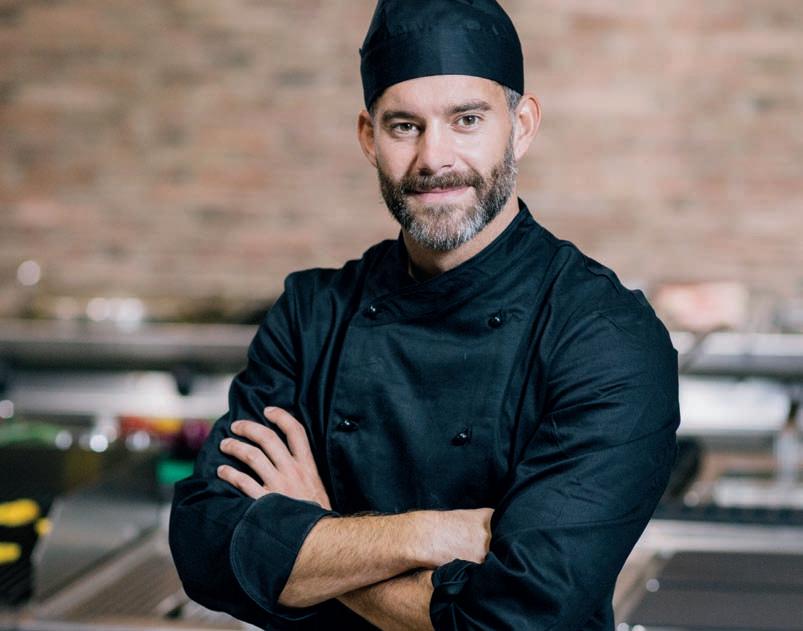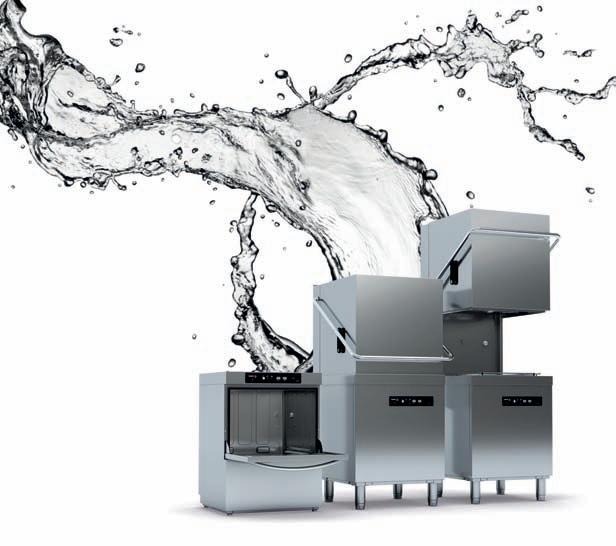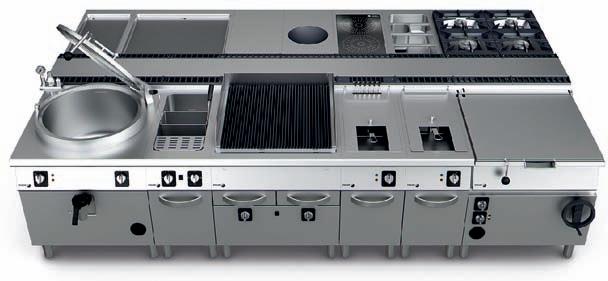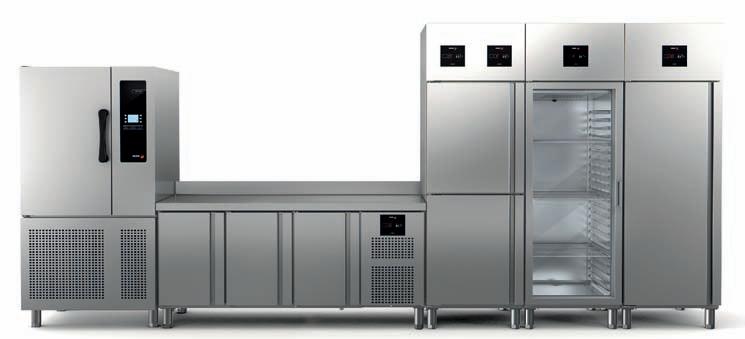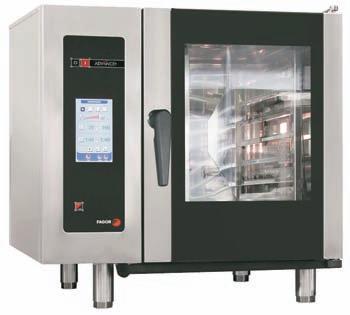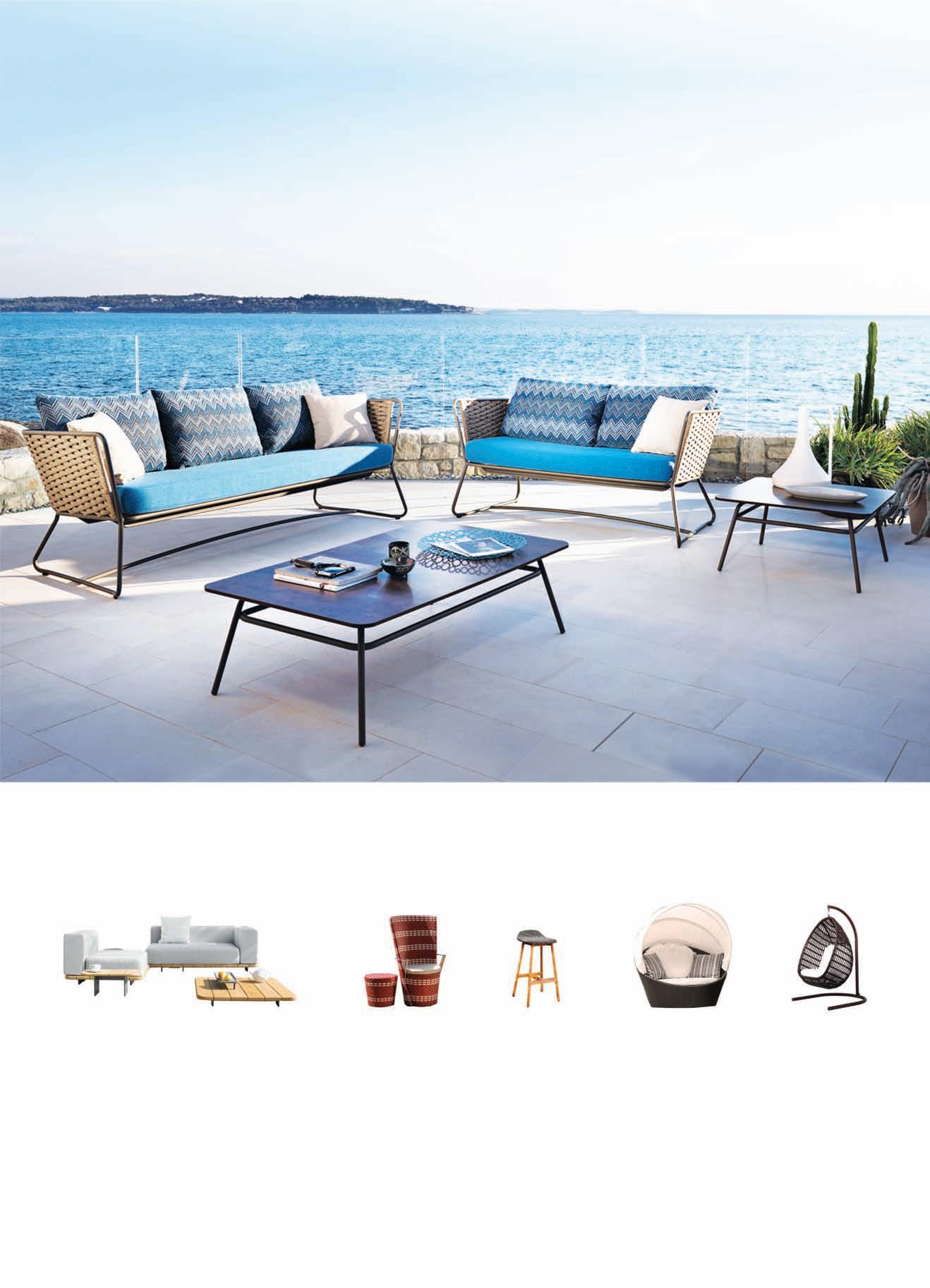
8 minute read
Report
FMCG Companies Took to Apps
The eruption of Covid-19 has left millions and millions of businesses scurrying for survival. Although somewhat less affected sans some categories, the FMCG companies too did face headwinds for some time. And to counter these headwinds, technology has been the single most important intervention that they have employed during these trying times. And of the technologies, applications enabling direct route to consumer as well as other businesses in the value chain have been most prominent.
Advertisement
While placing their faith in these applications, FMCG companies have also recast their value chains weeding out unnecessary elements at various levels allowing themselves greater leverage vis-à-vis their vendor partners and establishing a more direct connect with their end-consumers. And among FMCG firms, food companies or those with prominent food product portfolios have been particularly noteworthy for taking the app route. A step ahead of general trade, modern trade or even traditional e-commerce channels, these apps have been the popular yet necessary go-to modes for these companies.
The Big B2C Advantage
How does B2C prove to be advantageous for FMCG companies? Until now, customerrelationship building and acquiring customer insights were largely the preserve of the retailer community. However, what B2C apps do is that they facilitate a direct and one-onone company to consumer relationship with the former no more having to make efforts to establish bonding with a faceless consumer. On top of allowing deeper end-consumer insights for companies and brands, they can catalyze a more relevant and individualized product and service propositions by the brand to the consumer thus leading to a more enriching customer experience which in turn would drive increased customer acquisition, conversion and retention for the brand. And needless to say, the power balance between the brand and the retailer is further shifted in favour of the brand and away from the retailer.
B2B Applications not too far away
However, this taking to applications has not been limited to B2C channels. FMCG companies have also incorporated Apps in their business processes directly targeting retailers and kirana stores who offload their products and serve as last mile seller/supplier to end-consumers. Identifying and prioritizing retailers who delivered top volume businesses, the companies made sure that the retailers continued to place orders for their products, and even more efficiently using these applications than they did before.
In fact, during Covid, the earlier forecasts projecting contribution of around 10% digital channels in the total FMCG market in the next ten years in the country has been advanced to next three to four years now. And at the same time, cutting out or minimizing the role of distributors especially in terms of selection of retail outlets, the brands have reclaimed their power vis-à-vis the latter while effecting greater streamlining and consolidation of their distribution systems.
Proliferation of New Products
While pivoting to digital technologies, B2C and B2B apps, the FMCG companies have also realigned their product portfolios in a major way capitalizing on the shifting consumer preferences and behavior in the times of the pandemic. And as part of this realignment, there has been a proliferation of new and innovative products which have been introduced to the market in the last few months.
With health and hygiene being a predominant consumer focus, as many as 3,000 products in the health and hygiene category have been estimated to be launched in the September quarter alone last year. Earlier, in the April-September quarter, as many as 9,700 new products were launched by FMCG companies. Mindful of and in response to the country-wide lockdowns in place and customers being confined to their homes, 125 products were introduced in home cooking segment alone during March-August 2020 in categories including ketchups, jams, cheese and milk powders.
Exploring Alternative Channels of Distribution
Even as D2C Apps gain traction, the FMCG companies are also exploring tie-ups with new-age delivery startups, food-tech service players, food aggregators, hyper local apps and courier firms to have their products delivered to the doorsteps of the end-consumer. In fact, some FMCG companies are also making product-specific tie ups with delivery platforms and micro delivery platforms.
Digitization not Limited to Distribution: Influencer Marketing gets a Boost
Rising uptake in Apps and the broader digitization has not only been confined to retail and distribution, but also advertising and marketing. And riding on the increasingly entrenched position of social media and its consumption, influencer marketing has become a big part of FMCG’s digital marketing strategy in recent one year.
According to a report, globally, nearly a fifth (19%) of FMCG companies has raised their influencer spending significantly as compared to pre-covid-19 levels. And within India, during the festive season campaign alone, influencer marketing saw a 20% jump in campaigns. A digital marketing agency has estimated India’s influencer market at $75150 million a year, as compared to the global market of $1.75 billion, which is only set to get bigger in the coming months and years.
Other Technologies that could Aid the B2C Momentum
At the same time, apart from Apps, there are several related B2C technologies and platforms that could add teeth to the ongoing B2C drive. They could range from customer data platforms to data management platforms to marketing automation tools to business intelligence and data visualization tools to social listening tools, among others.
So, in coming future, there is no doubt that the B2C apps as part of an FMCG company’s digitization programme will acquire a more permanent dimension. Notwithstanding a resurgence of Covid in certain states, now with vaccination underway and revival of consumer sentiment in urban India, FMCG businesses including food companies are set to see greater activity and growth.
By Manish Aggarwal
The author is Director at Bikano, Bikanervala Foods Pvt. Ltd., a prominent figure in the Indian FMCG industry.
Lavazza, the Italian brand that is among the world’s leading coffee roasters, has announced the launch of La Reserva de ¡Tierra! India, a unique premium blend of refined coffees fully sourced from Karnataka and crafted in India, for professional use in cafes, fine-dine restaurants and star hotels.
This variant is part of Lavazza’s brandnew La Reserva de ¡Tierra! range - a collection of the finest and sustainable coffee blends carefully designed and crafted to offer professional baristas the unique taste experience of a coffee origin land while highlighting the Group's commitment to creating a sustainable coffee experience.
La Reserva de ¡Tierra! India is an espresso premium blend from the Malabar Coast of Karnataka and Kerala prepared with a slow, delicate and gentle roasting process containing the Indian specialty Monsooned Malabar coffee blend. Known for its soft and mellow characteristics with notes of cocoa, spices, liquorice and a winey aftertaste, the blend comes in a completely recyclable packaging and is 100% Rainforest Alliance certified. With a balanced body note, aroma and taste, La Reserva de ¡Tierra! India will bring the best coffee experience there is in the HoReCa & food-service industries, narrating the story of sustainability with every cup.
Commenting on the launch of La Reserva de ¡Tierra! India, Jai Ganesh Ramnath, Managing Director, Lavazza India said, “La Reserva de ¡Tierra! reiterates Lavazza’s commitment to our planet, our farmers and our customers. There is a story of sustainability behind every cup from this collection; ¡Tierra! Brasile and Colombia, two recently launched blends from this collection have been acclaimed globally for their unique blends. We take immense pride in launching La Reserva de ¡Tierra! India, a blend that has been 100% grown and procured in Karnataka and roasted in our Indian factory that is located in Sri City, Andhra Pradesh. We have had the opportunity to work in close quarters with farmers from Karnataka and to be exporting ¡Tierra! India to the rest of the world is a true testament to this unique blend that truly belongs to the soil of India.”
Lavazza ¡Tierra! is a social responsibility project that was started by Lavazza Foundation in 2002, aimed at improving living and environmental conditions of coffee-producing communities around the world while providing them with the brand’s technical know-how to help their businesses grow.
La Reserva de ¡Tierra! India is available in 1 kilogram packs. All Tierra ranges, due to its ethics & sustainability features, reveals, reminds and refers to the strong commitment to CSR of Lavazza Group which is symbolized by Blend for Better, Groups’ commitment to sustainability.
Monsooned Malabar
Centuries ago, coffee beans were being shipped to Europe and a wonderful accident occurred. The monsoon winds along the journey caused the coffee beans to swell, change colour and acquire an intensely mellow taste with no hint of acidity, making the coffee much fuller and softer; this won the hearts of coffee connoisseurs. Famously named after the monsoon winds of the Malabar Coast, Monsooned Malabar today is produced commercially where the coffee beans are stored in special warehouses where moist monsoon winds circulate. This process yellows the beans and reduces the acidity, imparting heavy syrupy flatness reminiscent of aged coffee.
Salud Beverages Introduces G&T 2.0 Lavender
Salud Beverages has introduced G&T 2.0 Lavender which is infused with the lightly aromatic and gently floral vibes.
Subtle French Lavender is crafted with Indian Tonic and English Juniper to provide a bright, lively and refreshing drink that is quite distinctive and almost ethereal. A classy yet modern take on a drink that feels like an aromatherapy in a bottle. G&T 2.0 is India's first pour-and-go gin and tonic.
Bagrry’s Launches Granola Range
Bagrry's, a pioneering brand in breakfast cereals and health foods that brought Oats, Muesli and Bran to India has launched the Superfood Granola in two exciting flavors for breakfast. The variants are Belgian Dark Chocolate & Almonds Granola and Exotic Fruits with Cranberries & Almonds Granola. The Belgian Dark Chocolate & Almonds is an enhanced version of the double chocolate granola. With this, one gets a wholesome dose of fibre-rich oats, Californian almonds and protein packed quinoa. The granola gets a delicious inclusion with Belgian dark chocolate, whole wheat, and crunchy rice flakes. This granola is made with 5 great grains along with 40% fibre oats and is 100% vegan & plant-based.
